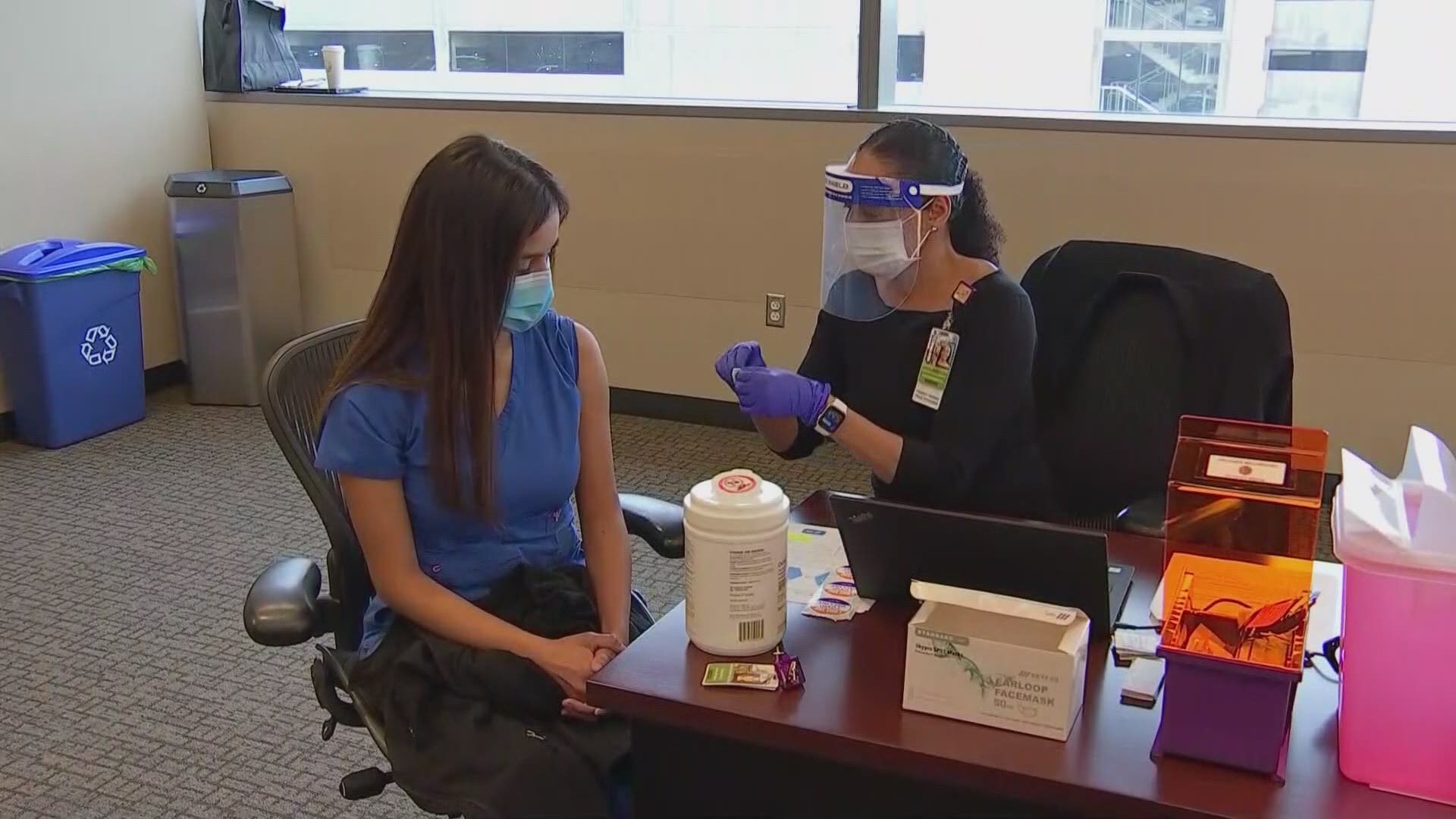DALLAS — Crystal Howell answered some questions sent to WFAA about the COVID-19 vaccine. She's a board certified infectious diseases pharmacist and assistant professor at University of North Texas Health Science Center College of Pharmacy.
How important is the second dose?
"The second dose is incredibly important. When they were looking at the trials, it wasn't until you received the second dose, about 7 to 14 days after, where you are able to reach that 95% vaccine efficacy of preventing symptomatic COVID. In the time between the first dose and the second dose, the vaccine efficacy was only about 50%."
How long can the vaccine last?
"I suspect that it is somewhere between five to eight months, but we will need more time to figure that part out."
If I get the COVID-19 vaccine, can I still spread it to others if I am exposed?
"The vaccine trials were really just looking at preventing symptomatic COVID, so they did not look at people who were asymptomatic. So we are not able to evaluate transmissibility."
"Definitely keep with the hand washing, wearing a mask, staying six feet apart because we don't have the data to validate that we can't transmit."
What is actually in the COVID-19 vaccine?
"Talking about the mRNA vaccines, since that is what is available right now, they have isolated a particular protein called the spike protein that is on COVID. On the virus itself, it has little spikes coming off of it."
"The code for the protein is put into the serum and it is what is injected."
"Your cells will utilize that little piece of code to create that spike protein, and when your body produces that protein, it causes the immune reaction because it is not used to seeing it. So that is something the body can then use to identify COVID if it sees it in the future and cause an immune reaction to help kick it out faster."
How is vaccine distribution going, and when can things get back to normal?
"If we can get the high risk people vaccinated, that is where we will have the biggest ability to save lives. And we really need 65% to 75% of the population to be vaccinated in order for things to get back to normal."


